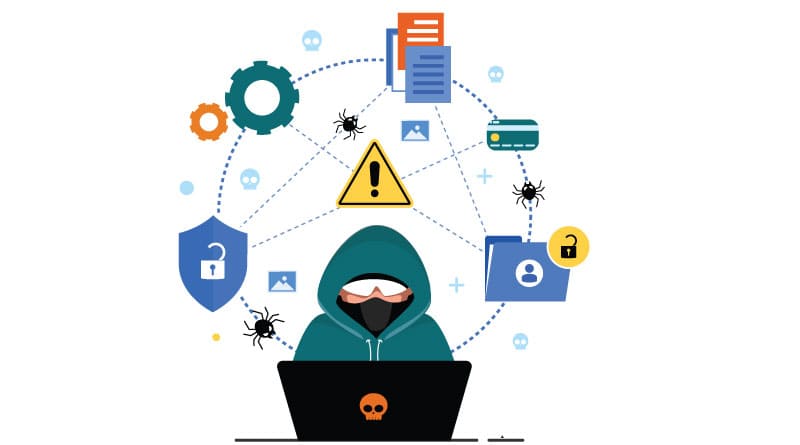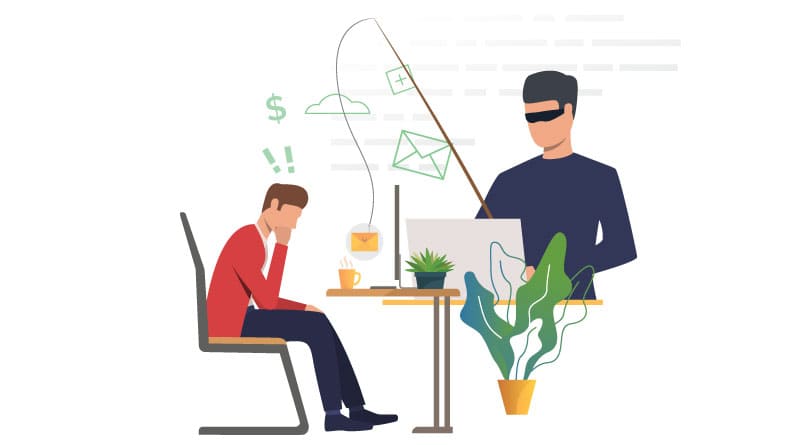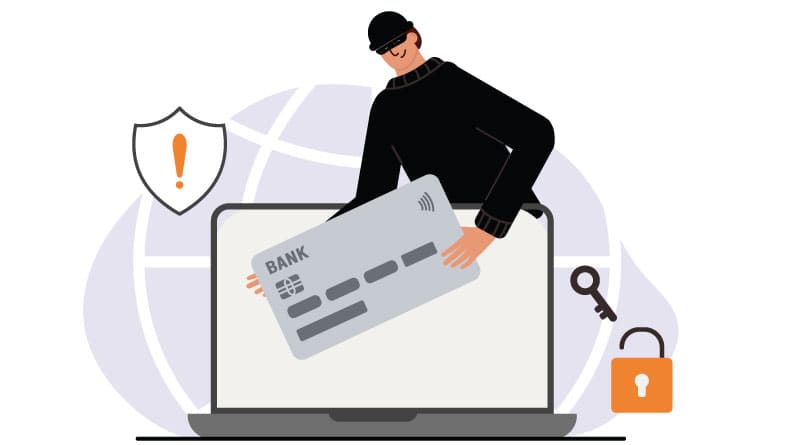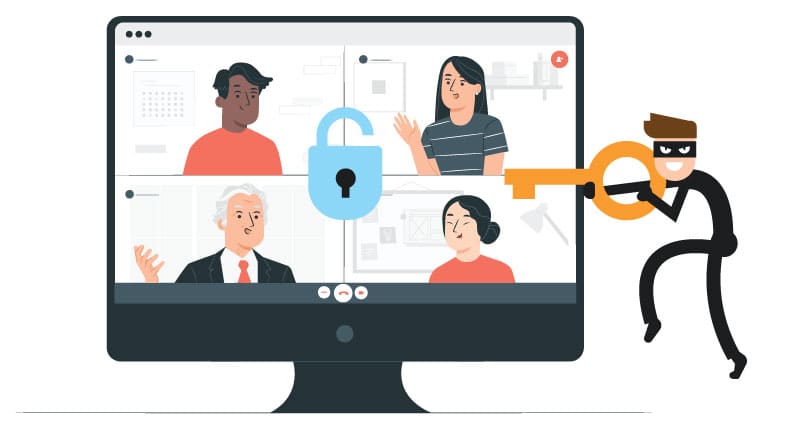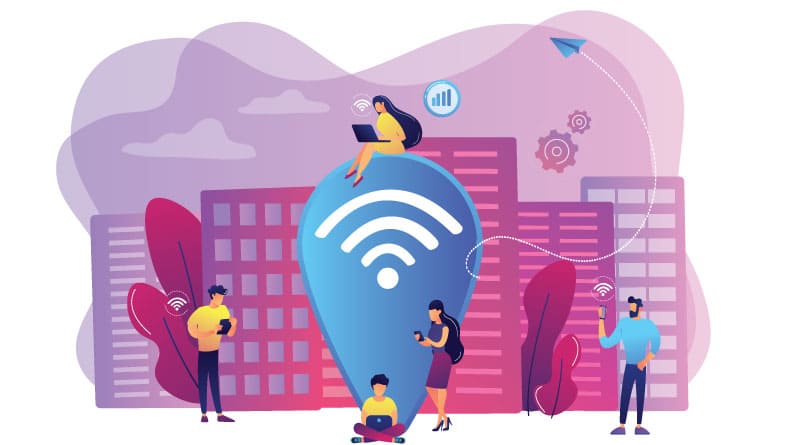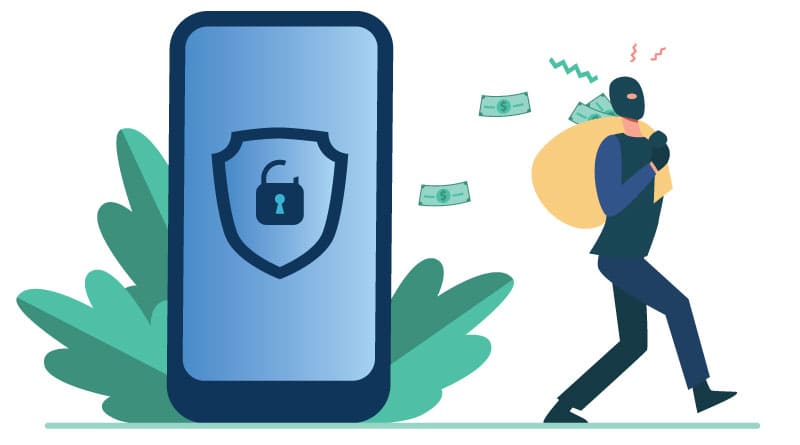How does your perfect day look like? Getting a huge sale in a supermarket, posing perfectly to get some best pictures of yourself, getting free Wi-Fi to download your favorite series, or having a fun ride to your favorite place? Using the best cameras, CCTVs, Wi-Fi-based automatic devices; advanced IoT devices to make your life smoother can also pull the trigger to some of the worst days of your life. The hackers and scammers are always in search of loopholes to get access to your sensitive information. You never know where you are being monitored.
Here are 5 such places where you’d never expect to get hacked:
Email Hacking
What Is Email Hacking?
Email hacking is the unauthorized, illegal access to an email account for unethical and malicious use. The email account hackers manipulate the email addresses for monetary advantages and personal gain hampering the entire security.
How does it happen?
You can never imagine how hackers can gain the access to your email within a matter of a few clicks. Once they get access to your email account, they immediately gain the access to all the passwords that you have. The moment they click the “Reset Password” for any application, the verification page is mailed to your email account which now has been hacked.
Your email can be hacked in many ways. The most common ways include:
Virus- A virus or malware can be sent to your email address in the form of an email from a stranger or from a blind email address. The moment you open it, your password is captured and your data becomes transparent to the unauthorized person. The hacker can misuse any part of your sensitive data. He can send and receive emails and can delete or modify anyting in your account.
Phishing- It is one of the most common ways for hackers nowadays. It involves a process where the hacker disguised as a legitimate sender, sends a message to the victim’s inbox with some irresistible schemes and offers to lure poeple to hand over their sensitive data like passwords, pins, date of birth, etc. This scam can lead to identity theft and financial loss.
What can you do to prevent it?
While the mail servers and the email administrators are trying to strengthen the encryption and provide hassle-free services to us, we need to do our part to protect ourselves from getting scammed.
- Switch on the two-factor authentication. This protects you even if your password is at stake.
- Create Strong Passwords to encrypt its content and put digital signatures if needed.
- Use Firewalls, antivirus software, and intrusion detection systems (IDS) to keep the network in check.
- Opt for secured web hosting platforms that provide email services and allow you to create business email accounts. They look professional and are highly secured.
- You can add email spamexperts service in order to protect your email account.
Hacking While Making Online Payments
How can you get hacked while making online payments?
Cyber attacks do take place while making online payments. Sometimes, you start getting messages and emails from an unauthorized number that few of your bank details have been changed. And knowing that you didn’t change, you chose to ignore the message. Here is where your sensitive data starts getting compromised. Some hackers and skimmers use man-in-the-browser attacks to accomplish their selfish deeds. In this process, the attacker modifies the original web pages, because of this, even if we login to the correct web address, our activities and personal data can be intercepted by a third person.
What can you do to prevent it?
Going cashless also includes the chances to get virtually stolen. So you need to keep an extra eye to secure your accounts from getting hacked.
- If someone calls you and claims to be there on behalf of your provider, ask them to call you back from the public phone number of the company. Don’t give out sensitive information or account details right away!
- Keep an eye on email. Your email is connected with every other account that you own. If you see any suspicious behavior or communication that doesn’t look genuine to you, double check on it and report it if it is not done by you.
- If you get emails saying that you changed a few of the details of your banks and you know you didn’t change them, your sensitive data may have been compromised. It is the time when you should cease your account to any further ghost transactions.
- Keep your bank accounts in check and expect and verify even the smallest of the transactions.
- While making online payments make sure that the website is safe. It should have an SSL encryption. Only make online payments on a secured website.
Webcam Hacking
What is Webcam Hacking?
The webcam in your PC or laptop can act as the spy camera if used maliciously, Camfecting is real! Camfecting involves hacking the person’s webcam and accessing the camera without the consent of the owner.
How does webcam hacking happen?
These types of attacks take place through Trojan software disguised as hidden applications. The attacker implants a Trojan horse in the victim’s system and takes the control of the webcam. The Trojan horse multiplies and installs itself silently without the notion of the victim. The attacker then takes control of the webcam and captures pictures/videos.
What can you do to prevent it?
- Keep the webcam software updated to minimize the chances of getting hacked.
- Check if there are any unexpected video files from the webcam. In case there are any, your system most likely is infected and you are already a victim. Run the antivirus software and scan for possible malware.
- Keep the camera settings in check. Disable the ability of the apps to access the webcam directly without permission.
- If your antivirus shows any suspicious apps, make sure to verify and remove the unwanted apps.
Using A Public Wi-Fi
How can you get hacked while using a public wifi?
When you see free Wi-Fi, you don’t miss a chance to use it. Here is where our psychology is taken advantage of. Cybercriminals set out traps with free Wi-Fi to be accessed by us so that they can get access to the system, they use the Pineapple routers. These are small devices that are plugged directly into hackers’ computers which can mimic a Wi-Fi network or a website. The moment you enter your credentials or sensitive information, it goes directly to the hackers’ server. Pineapple protection has to be paid attention to when dealing with open networks.
What can you do to prevent it?
- It is always better to avoid unknown and open Wi-Fi networks.
- Turn off every Wi-Fi network once the use is over and also reset your Wi-Fi to avoid connecting automatically to your system.
Phone Hacking
What is phone hacking?
Technology never ceases to amaze us, does it?
So are people who find loopholes in it. A person sitting on another side of the globe can have the access to your phone with its apps, camera, microphone, and SIM card. Unexpected freezing of the screen, crashes, numerous glitches, unexpected starts are a few of the signs that your phone and all its data are compromised.
How does it happen?
There are many loopholes for hackers to crack into your phone. Even an unprotected Bluetooth connection can compromise your device. Suspicious links and surveys that appear in the browser of your phone can be the ferocious paws of the hackers trying to get your phone. Once you click on any suspicious or unauthorized links or take surveys through your phone, the applications in your phone and your phone data can get compromised. The result can be very disturbing.
What can you do to prevent it?
Your phone is always on the edge of getting hacked one way or the other. This doesn’t imply you should stop using cool devices and tools to make a better life for yourself.
- Reset your connectivity settings to avoid automatic connection with any Wi-Fi, Bluetooth, or devices around you.
- Do not download any file or pdf from any unknown source.
- Take part in surveys or tests or quizzes only from trusted and reputed sites and do not give any kind of personal or sensitive information over the web to anybody. There are alternative ways to share personal details over the web.
- Do not store your credit card or debit card details and sensitive data on the phone. If you do, make sure to use a secure app for it. You can add a password to the folder that consists of your card or bank details.
- Change your phone’s default password and be a little specific while setting passwords.
Conclusion
Even for the advanced and the greatest of all technologies, certain loopholes are just a step away to be discovered by some evil prodigy.
As there are ways for hackers to compromise the technologies, so are ways available to stop them from exploiting us. It is just a matter of being cautious and aware in this world of alternatives. The next target might be you. You are always being enough exposed to virtually harm yourself on the web. Eventually, you must not be the one who gets crippled by it. Make sure to use protected websites and networks and do even the smallest possible thing to secure yourself online, it will work for you for sure.

